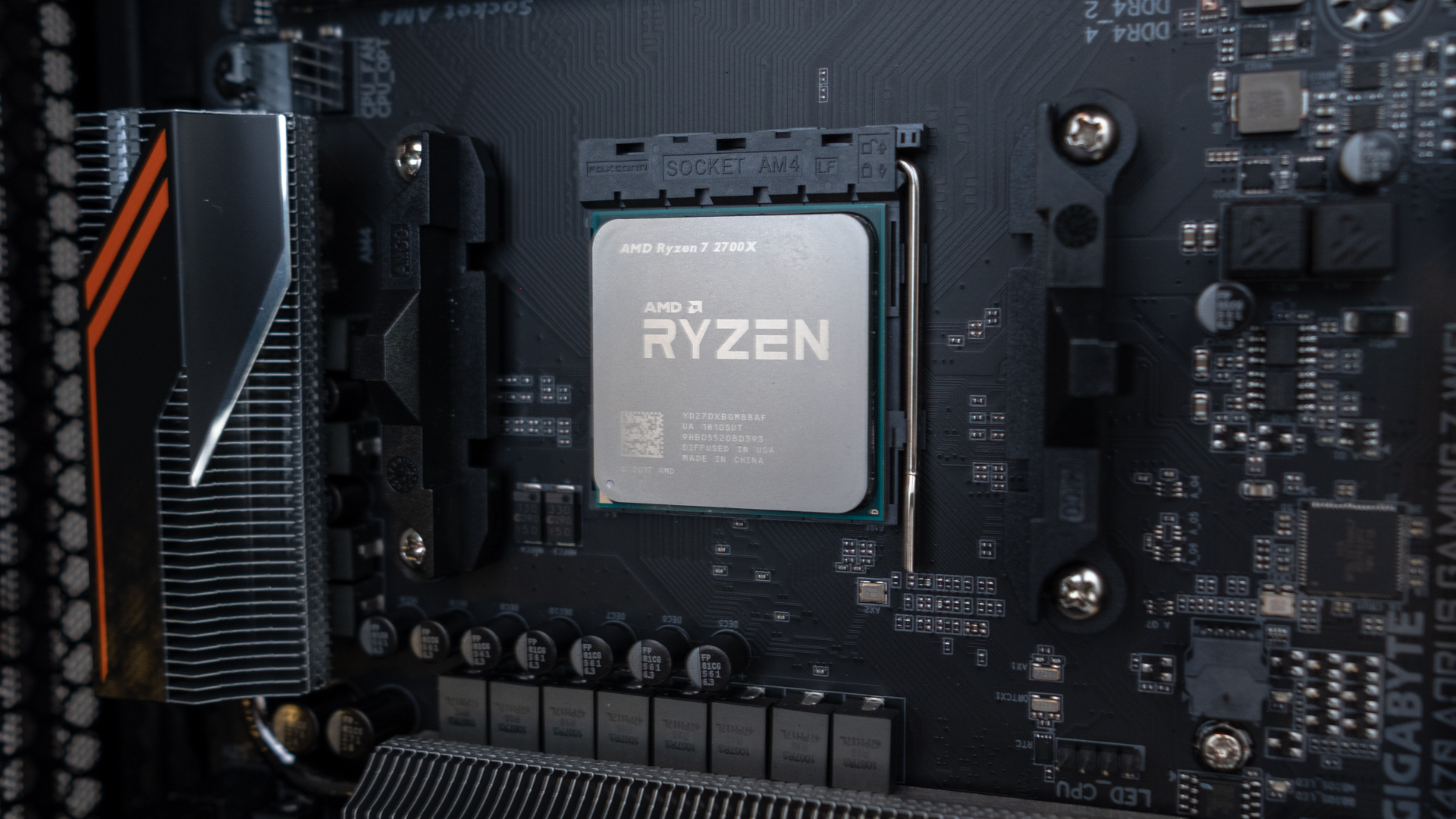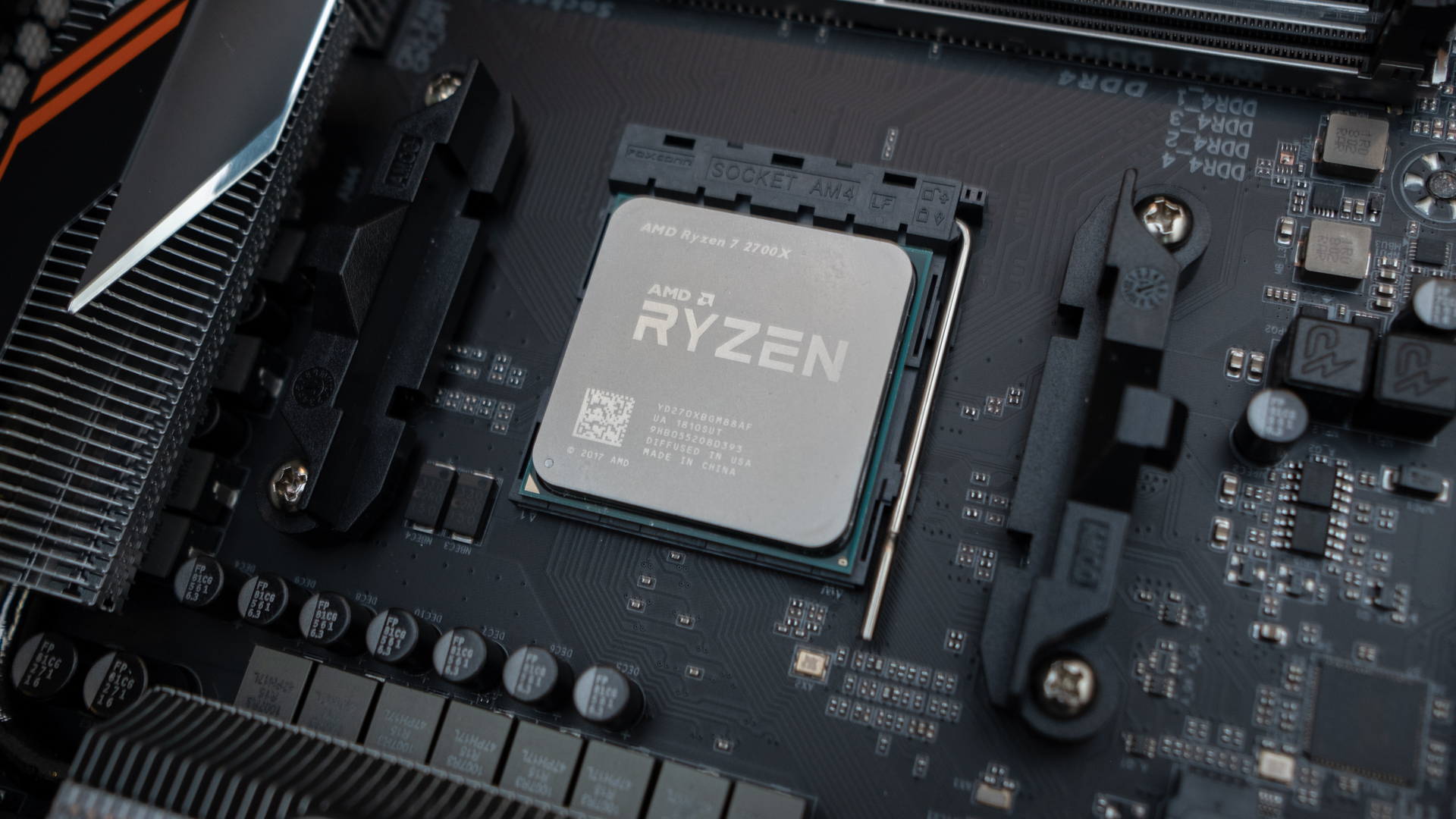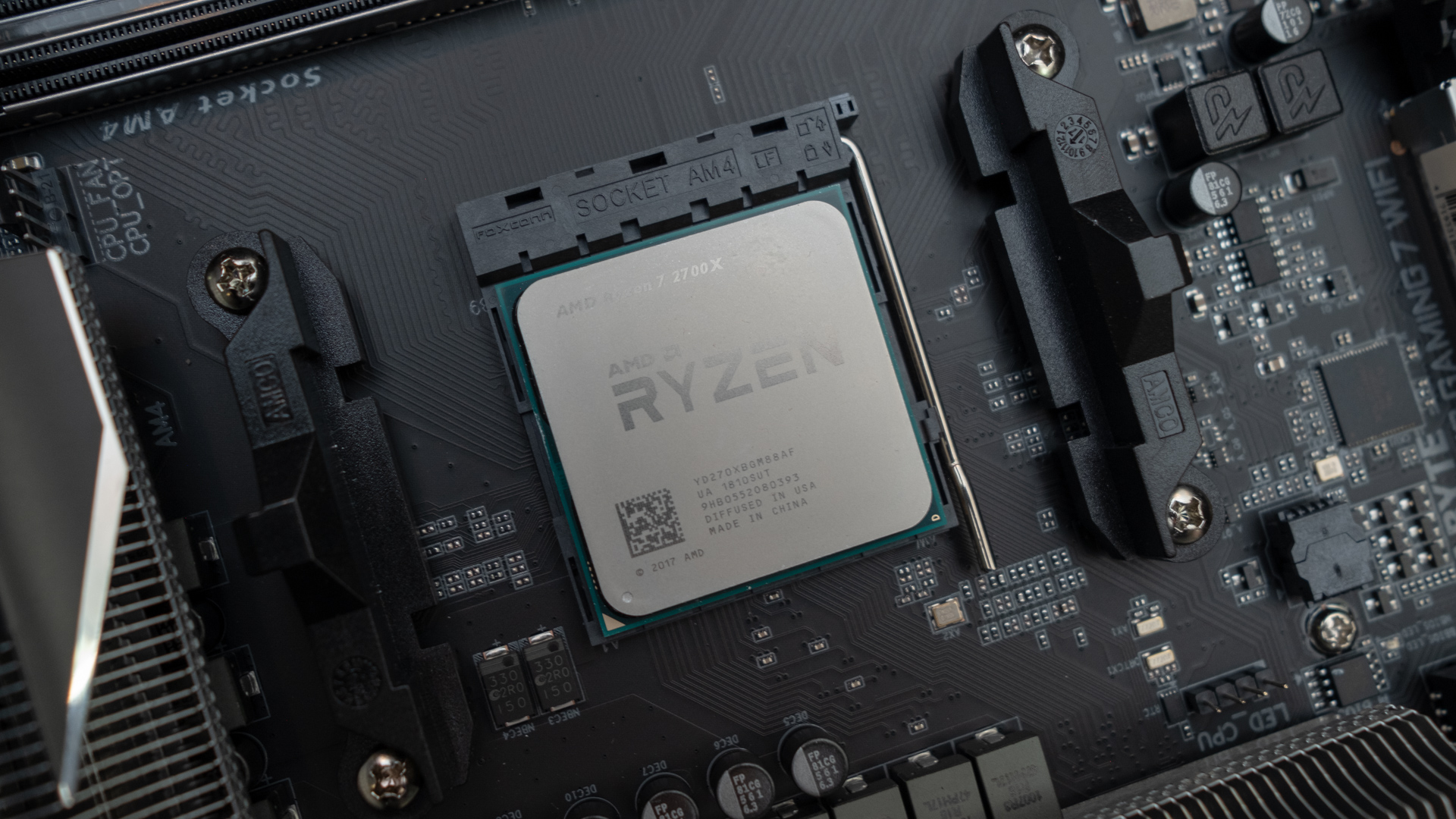AMD Ryzen 7 2700X
AMD had a banner year in 2017, introducing Ryzen to shake up the whole processor world with higher-core counts, better multi-threaded performance and lower prices than what Intel’s CPUs retailed for. For all its success, it was inevitable that we would see AMD Ryzen 2nd Generation do the same in 2018 expect bigger and better – and oh boy has it.
Ryzen 2nd Generation is the most significant processor refresh in years, introducing the first 12nm architecture in consumer CPUs, higher clock speeds and better overall features. The Ryzen 7 2700X encapsulates all of AMD’s ambitions by not only outperforming its predecessor, but also company’s last flagship Ryzen processor, as well as the Intel Core i7-8700K. Topped off with a very reasonable price, value adding software features and an included RGB CPU cooler, The AMD Ryzen 7 2700X has risen to be our Best in Class processor.

Pricing and availability
Priced at $329 (£299, AU$469), the AMD Ryzen 7 2700X is slightly more expensive than the Ryzen 7 1700X even at its initial $309 (£269, AU$429) pricing. However, based on the performance of this processor, we would also consider it to be a successor of the $499 (£299, AU$475) Ryzen 7 1800X.
Plus, the processor now comes with the Wraith Prism, which we consider to be a premium RGB CPU cooler. So, the AMD Ryzen 7 2700X looks like an overall better deal than its predecessor. Meanwhile, Intel’s competing chip, the Intel Core i7-8700K costs $349 (£319, AU$499).

Features and chipset
The AMD Ryzen 7 2700X might feature the same eight-core and 16-thread configuration as its predecessor, but it’s significantly faster with a 3.7GHz base clock and 4.3GHz boost. Comparatively, the Ryzen 7 1700X would max out at 3.8GHz and the Ryzen 7 1800X could go a smidge faster to 4GHz.
A large part of this speed boost comes thanks to Ryzen 2nd Generation’s new 12nm Zen+ architecture being a very literal generational leap over the 14nm Zen architecture Ryzen debuted with last year. AMD claims it’s latest chips provide 16% better performance and 11% lower power draw than a last generation processor running at the same clock speed.
Of course, new CPUs also means new chipsets and AMD has introduced the X470 platform to provide the better power delivery and efficiency we see with Ryzen 2nd generation. Together the enhancements enable the Precision Boost 2 to consistently push higher frequencies across all threads, which comes in handy for workloads like gaming and encoding. Overclocking also sees an improvement through Extended Frequency Range 2 (XFR2) now being enabled on all CPU cores rather than just one.
Although Ryzen 2nd generation processors will run best on the new X470 platform, it’s almost entirely optional. The 2700X and AMD’s other new chips will run just fine on a X370 or B350 motherboard because they’re fully compatible with the existing AM4 socket.
The only slight caveat is users will have to update their motherboard with a compatible BIOs, which unfortunately at least requires an 1st generation Ryzen part to do so. AMD tells us it’s working on a solution for users who want to buy into its new family of processors with an older platform. Otherwise, users will be able to see compatible motherboards in stores clearly labeled with a ‘AMD Ryzen Desktop 2000 Ready’ sticker.
Lastly, AMD has introduced a new optional StoreMI technology that basically ties all your storage mediums together for the quickest access to the most commonly used files and programs. Basically, if you have a solid-state drive and hard drive, AMD StoreMI will move the most commonly used files to the fastest storage in the system.
It’s very similar to Intel’s Rapid Storage technology, but AMD Store Mi also uses up to 2GB of DDR4 system memory to temporarily cache files and transfer them between drives. Again, it’s optional, but a nice feature that AMD promises to include on all its Ryzen 2nd generation CPUs.
Performance
In our past processor reviews, the fight between Intel and AMD would always result in the former having better single core and gaming performance, while the later would win out with multi-core performance. With the Ryzen 7 2700X, however, AMD wins the whole kit and caboodle.
Thanks to the higher-frequencies Ryzen 2nd generation is able to achieve, the 2700X overtakes the Intel Core i7-8700K in all our single-core benchmarks. The processor also continues to hold onto AMD’s crown for the best multi-core performance. Both of these figures translate to better overall performance, as evidenced by the Ryzen 7 2700X being able to encode files with the highest frame rate out of all the processors we tested in this review.
Of course, one thing to note is Intel processors are possibly at their weakest state in years. Not only does the Intel Core i7-8700K have two fewer cores than AMD’s new Ryzen flagship, the Spectre and Meltdown patches have significantly impacted its performance.
When we originally tested the flagship Coffee Lake processor last October, it scored much better in Cinebench with 204 points in single core and 1,543 on multi-core. And, in Geekbench, the 8700K landed 5,831 and 25,811 points in the single- and multi-core tests, respectively.
As for gaming, the Ryzen 7 2700X doesn’t beat the Core i7-8700K, but it has eroded Intel’s lead by a mere one to two frames per second.
The only thing we’re not in love about with the Ryzen 7 2700X is the high energy draw necessary for its impressive performance numbers – though that is ultimately a limit of physics. Good news is this processor will happily soak up as much juice as it can take, and easily overclocks to 4.375GHz on all cores when we initially tested it with other editors at an event.

Final verdict
The AMD Ryzen 7 2700X is undoubtedly the best consumer processor on the market right now. It’s only fair competitor ,the Intel Core i7-8700K, is slower on the single- and multi- core front and doesn’t offer much better gaming performance to justify its slightly more expensive price tag.
Though this is all partially thanks to Intel’s weakened post Spectre and Meltdown state, the improvements AMD has brought with Ryzen 2nd generation are astonishing. With the slow and steady tick-tock-tock CPU upgrade cycle we’ve been accustomed to in the last few years, we only expected bring marginal speed increases, but AMD has delivered yet another tidal shifting platform.
The greater frequency finally puts AMD’s processors on par and even above those of Intel’s. Meanwhile, the enhancements made to Precision Boost and XFR2 are impressive. Along with the inclusion of the Wraith Prism cooler and an AMD’s new StoreMI technology, the Ryzen 7 2700X is an incredible value package.
0 comments:
Post a Comment